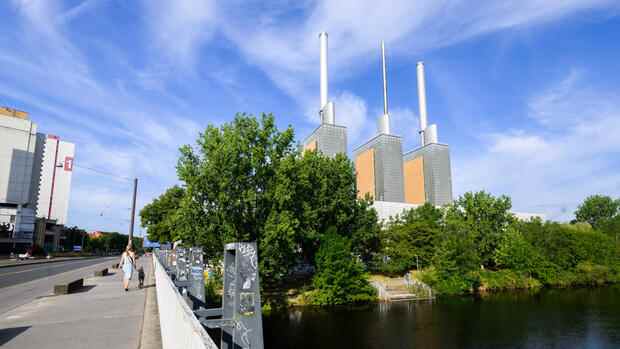The high price of gas is also driving up the price of electricity.
(Photo: dpa)
Brussels The European Union should come to the aid of companies that are concerned about their continued existence in view of the sharp rise in electricity and gas prices. This is what the Czech Energy Minister Jozef Sikela demands. The minister wants to set up a meeting with his colleagues to talk about capping electricity prices. The Czech Republic holds the EU Council Presidency this six-month period.
Sikela is currently examining the prospects of success in talks with the other member states. He told the Czech news agency CTK that he would support an EU-wide electricity price cap. He wasn’t more specific.
Discussions about a price cap began almost a year ago when gas prices rose significantly and electricity prices went with them. Germany and the EU Commission were always among the brakes in the discussion because they feared market distortions. Both have not yet publicly evaluated the new proposal.
However, economists and the German economy remain skeptical. Lion Hirth, Professor of Energy Policy at the Hertie School in Berlin, said: “The fluctuations on the markets are completely crazy and worrying.” But a price cap would immediately lead to supply problems if consumption is not reduced at the same time with fast-acting measures. “It is better to reduce consumption and thus dampen the market price,” says Hirth. “The price shows the scarcity. If we treat this symptom, we will only make the cause worse.”
Top jobs of the day
Find the best jobs now and
be notified by email.
The federal government is currently working on lowering grid fees and energy taxes and increasing the use of coal-fired power. Extended operation of the nuclear power plants, which are actually supposed to be shut down at the end of the year, is also being discussed. All of these are national decisions, the EU has little influence on them.
Relief leads to side effects
Some EU countries subsidize the electricity bills of their citizens and businesses. Real market intervention has so far only been allowed in Spain and Portugal. There, coal and gas-fired power plants are subsidized in such a way that the price of electricity does not rise above a defined amount, initially 40 euros per megawatt hour. In other European countries, the price is currently up to 600 euros.
Sikela is currently examining the prospects of success in talks with the other member states.
(Photo: Reuters)
In Spain, the intervention led to a relief, but also to undesirable side effects. Part of the artificially cheap electricity flows to France. The French benefit from a subsidy financed by Spanish taxpayers. The exception for the Iberian peninsula is only possible because the power lines used for this are poorly developed and the effect is therefore limited.
So far it is unclear who should reimburse the power plant operators for the additional costs of a European price cap. What Spain is doing is not a model for Europe, says Fabian Ronningen, an analyst at Rystad Energy.
>> Read here: How a gas price cap would harm German industry
The subsidy is a redistribution for which the citizens would ultimately have to pay. In addition, capped electricity prices would lead to an unnecessarily high demand. “I think the distortion of the market that then occurs is very relevant,” he said.
“Some production plants now have to be shut down”
Admittedly, the current prices are extreme. That is why there is a lack of empirical data on how the economy and consumers react. “Up until a year ago, the electricity price had risen to a maximum of 100 euros per megawatt hour,” says Hirth. “Now it happens that in a single day the price increases by 100 euros.”
Entire industries fear for their future in Europe. In other countries, energy prices have also risen, but not nearly as much. Churn is a real threat.
Nevertheless, even large industrial consumers are against a government-imposed price reduction. “The level of electricity prices has reached levels that threaten the existence of the basic materials industry,” says Roland Leder, President of the Metal Trade Association. “Indeed, politicians must act here and quickly initiate countermeasures.”
>> Read here: Over 2000 percent – electricity prices jump to a record high
However, he does not recommend market interventions, but rather direct payments. “In our view, emergency aid for companies would be a useful tool,” he said.
Hirth warns against keeping businesses running at all costs. “Some production plants now have to be shut down,” he says. “And then politicians have to decide which companies are kept alive so that they can go back to the market later.”
More: Germany is stuck in the energy price trap – “In key industries, companies will close down in rows”

